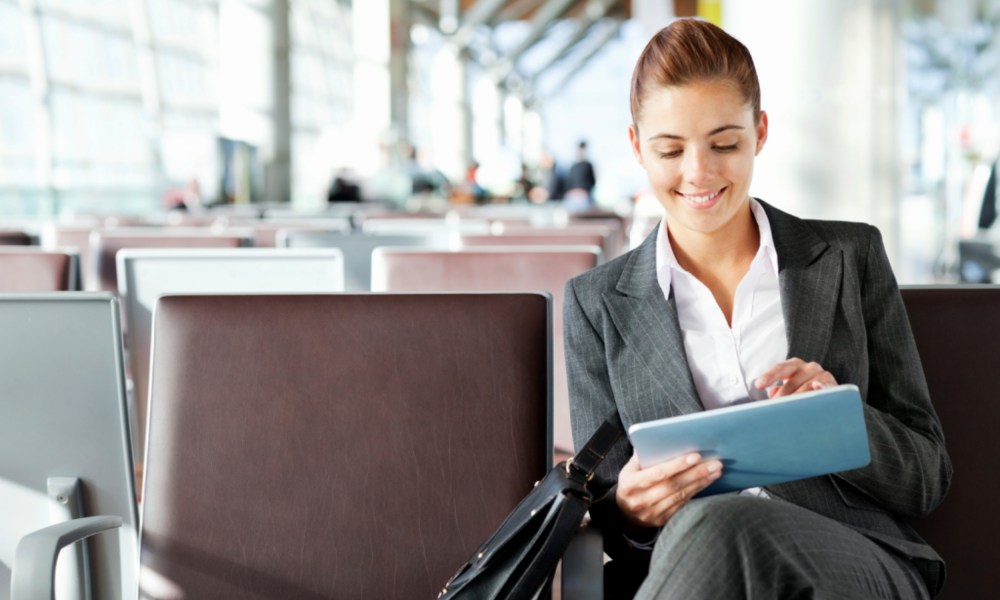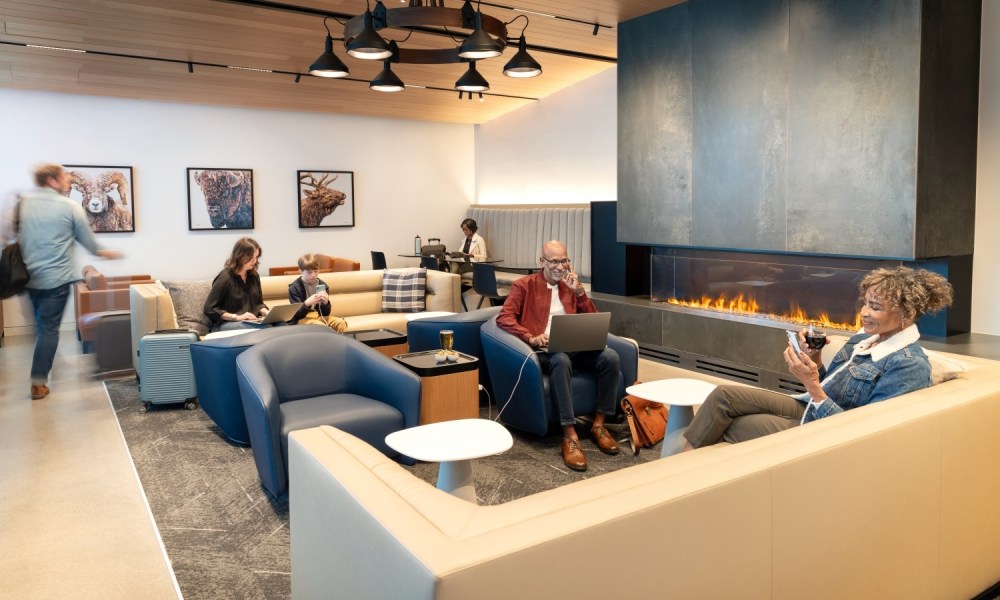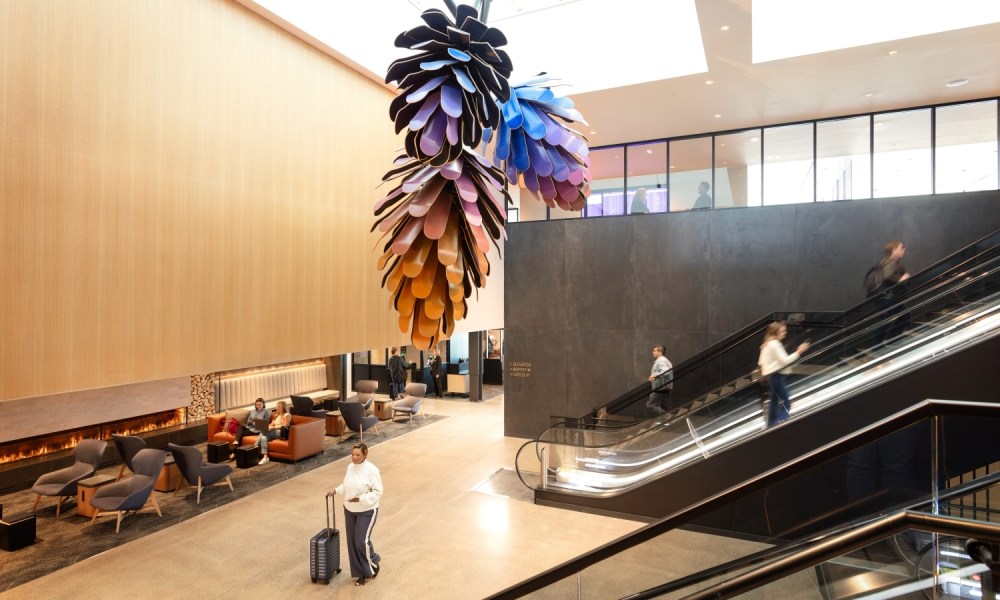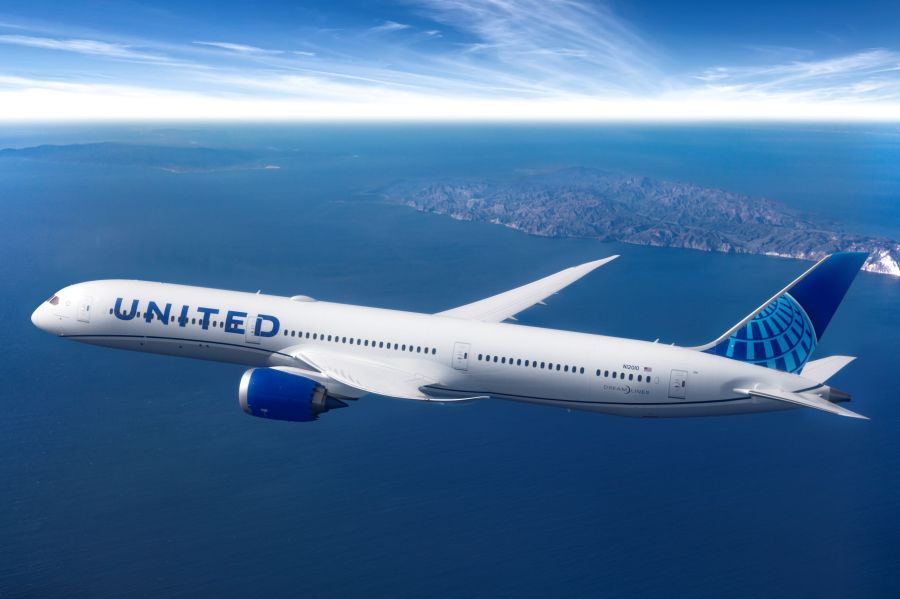The forecast for 2024 predicts global business travel spending will reach US$1.48 trillion by the end of the year, an increase on 2019 spending which was a previous record at US$1.43 trillion.
Additionally, by 2028, it is projected to exceed US$2.0 trillion, highlighting a robust path ahead for the business travel sector in terms of spending.
“We are witnessing the expected rebound in the sector, reflecting the resilience and adaptability of businesses and the value of business travel worldwide,” said GBTA CEO, Suzanne Neufang.
“With projected spending expected to continue to increase through 2028, the future of business travel looks promising.

“However, we must remain vigilant and adaptive to potential headwinds in this period of stabilisation, as factors such as changing economic conditions, technological advancements and sustainability developments will also shape the sector ahead.”
Speaking on stage alongside Neufang at the GBTA Convention 2024, Delta Air Lines President, Glen Hauenstein, said the numbers were positive, he was expecting a further boost to business travel demand this coming northern Fall as business travellers get on the road and see clients.
“We’re not quite on 2019 numbers but we are getting close,” he said. “We think business travel demand is going to continue to increase.”
The Business Travel Index Outlook, an annual exhaustive forecast of business travel spending and growth covering 72 countries and 44 industries and released to over 5000 delegates at the GBTA Convention, also revealed relative stability in the global economy has continued to drive growth which, along with lingering pent-up demand, has provided reassurance for CEOs and CFOs to get their people back on the road for business meetings.
Many top business travel markets around the world have returned to or are nearing pre-pandemic levels, reinforcing the momentum of the recovery and boosting spending.

However, the outlook for economic and business travel growth presents a balance of both potential upside factors and downside risks.
Global business travel spending is anticipated to increase 11.1% in 2024, after significant years in 2022 and 2023 of 30%-47% growth year over year.
Growth is expected to continue to gradually moderate, resulting in an annual compound growth rate of 6.95% from 2025 to 2028.
In 2023, the business travel industry had recovered approximately US$675 billion of the US$770 billion lost in 2020, according to GBTA BTI analysis, achieving 93% of the pre-pandemic peak of US$1.43 trillion by the end of 2023.
The sector experienced a significant resurgence in 2023, with spending growing by 30% compared to 2022, reaching US$1.3 trillion.

-Global business travel spending is expected to recover to its pre-pandemic total of $1.48 trillion in 2024, fueled by more favorable economic conditions than expected in 2022 and 2023. (While recovery has been impressive, it is important to note that when adjusted for inflation, spending levels are anticipated to lag pre-pandemic highs over the coming years, implying that business travel volumes will remain below pre-pandemic levels as well.)
-The estimated breakdown of the $1.34 trillion in 2023 business travel expenditures includes $501 billion for lodging, $282 billion for air travel, $245 billion for food and beverage, $165 billion for ground transportation and $142 billion for other travel expenses.
-Recovery in business travel continues to vary by region. Asia Pacific emerged as the fastest-growing region in 2023 (36%), followed by Western Europe (33%) and North America (25%). The recovery bounce back was led in 2023 by the U.S, Middle East and Africa, and Latin America, all achieving 100% or more of 2019 spending numbers. For 2024, China and the U.S. are forecast to continue to lead as the top two markets, respectively, for overall business travel spending.
-Business travel spending also continues to differ across industries. The financial and insurance activities sector is projected to experience the most significant expansion (72%) in business travel spending through 2028. Conversely, the retail trade (41%) and agriculture, forestry and fishing (32%) sectors are anticipated to see the least growth during this period.

-With an optimistic outlook overall, there are factors that could impact business travel’s longer-term forecast. Persistent inflation, China’s slower recovery, geopolitical tensions, industry workforce challenges and incidence of natural disasters could result in shifts to the outlook. Increased focus on corporate sustainability also has the potential to impact the sector, demonstrating the vital importance of coordinated action across the industry for business travel’s future.
-Potential upside impacts for the business travel sector include ongoing economic stability, technological advancements, particularly in artificial intelligence (AI), and stronger-than-expected economic growth in key markets like the U.S. and India.
-GBTA’s survey of 4,100 business travelers across 28 countries and four regions (North America, Europe, Asia Pacific, and Latin America), revealed an increase in overall business travel, with international travel remaining below average. Sixty-four percent of business travelers globally report increased spending on business travel compared to 2023. However, over one-third (37%) say they have experienced more restrictive travel policies since pre-COVID.
-Business travelers globally estimate their own spending, on average, amounts to $834 per person based on their last business trip. Lodging accounts for $312, on average, and food and beverage is $153. Air travel averages $176 while ground transportation ($103) and miscellaneous expenses ($89) round out the total.
-A majority of survey respondents (81%) reported that their most recent business trip was very (46%) or moderately (35%) worthwhile in achieving their business objectives. When asked about their most recent business trip, the most common purpose of travel among all global business travelers is attending seminars/training followed by conventions/conferences.

-Compared to 2019, 76% of business travelers traveled the same or more for business travel. Those traveling more (28%) outpaced those who travel less (20%) over the same period. Although overall business travel has increased, both international and group travel remain, on average, lower than 2019 levels. Two-fifths (40%) of the trips taken are three-to-five-night stays, while two-night stays account for one-third (32%). Additionally, 58% said they extended work trips for leisure or vacation about the same (41%) or more frequently (17%) than previous.
-When asked about their greatest priorities while traveling for work, maximizing comfort (43%) and minimizing cost (41%) are on the same level globally, with 16% saying reducing carbon emissions. Additionally, European travelers (22%) are more likely to prioritize reducing their carbon footprint compared to other regions.
-When it comes to payment methods for business travel, nearly two-thirds (61%) of global business travelers across all regions are given a corporate credit card. Credit card utilization is significantly higher among North American business travelers, as nearly a third put 100% of their trip expenses on their corporate card.
-Three in five (59%) business travelers surveyed have uploaded their corporate credit card to a mobile wallet and approximately 87% report they use their mobile wallet for at least 10% of their business travel transactions.

United’s brilliant Polaris Business Class cabin
WAYFARER flew to the GBTA Convention 2024 in Atlanta on United Airlines, which offers daily flights to the city from across America (including Denver, Houston, Los Angeles and San Francisco) and around the world.
Book a ticket on the long-haul sector in United’s Polaris Business Class cabin, which features flatbed seats, pyjamas (on flights over 12 hours), all-new Saks Fifth Avenue bedding and onboard amenities from Therabody – including a kit that features an eye serum, face spray, hand cream and cleansing towelette exclusive to United customers – alongside fantastic inflight food and drinks (including an a new, brilliant wine menu), premium noise-reducing headphones and fantastic inflight hospitality.
It’s an exciting time for United, with the carrier dramatically increasing Asia-Pacific and European services and debuting new United Clubs across the network.